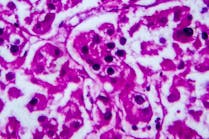UCLA Health researchers found that women older than the age of 50 who had breastfed their babies performed better on cognitive tests compared to women who had never breastfed. The findings, published in Evolution, Medicine and Public Health, suggest that breastfeeding may have a positive impact on postmenopausal women’s cognitive performance and could have long-term benefits for the mother’s brain.
When cognition becomes impaired after the age of 50, it can be a strong predictor of Alzheimer’s Disease (AD), the leading form of dementia and cause of disability among the elderly – with women comprising nearly two-thirds of Americans living with the disease.
Many studies also show that phases of a woman’s reproductive life-history, such as menstruation, pregnancy, breastfeeding and menopause can be linked to a higher or lower risk for developing various health conditions like depression or breast cancer, yet few studies have examined breastfeeding and its impact on women’s long-term cognition.
“What we do know is that there is a positive correlation between breastfeeding and a lower risk of other diseases such as type-2 diabetes and heart disease, and that these conditions are strongly connected to a higher risk for AD,” said Helen Lavretsky, MD, the senior author of the study and a professor in the Department of Psychiatry and Biobehavioral Sciences at the Semel Institute for Neuroscience and Human Behavior at UCLA.
The researchers analyzed data collected from women participating in two cross-sectional randomized controlled 12-week clinical trials at UCLA Health: 115 women chose to participate, with 64 identified as depressed and 51 non-depressed. All participants answered a survey and completed a comprehensive battery of psychological tests measuring learning, delayed recall, executive functioning and processing speed.
Importantly, none of the participants had been diagnosed with dementia, or other psychiatric diagnoses, such as bipolar disorder, alcohol or drug dependence, neurological disorders or had other disabilities.
Key findings from the researchers’ analysis of the data collected from questionnaires on the women’s reproductive history revealed that about 65% of non-depressed women reported having breastfed, compared to 44% of the depressed women. All non-depressed participants reported at least one completed pregnancy compared to 57.8% of the depressed participants.
Results from the cognitive tests also revealed that those who had breastfed, regardless of whether they were depressed or not, performed better in all four of the cognitive tests measuring for learning, delayed recall, executive functioning and processing compared to women who had not breastfed.
Separate analyses of the data for the depressed and non-depressed groups also revealed that all four cognitive domain scores were significantly associated with breastfeeding in the women who were not depressed. But in the women who were depressed, only two of the cognitive domains – executive functioning and processing speed – were significantly associated with breastfeeding.
Interestingly, the researchers also found that longer time spent breastfeeding was associated with better cognitive performance. Women who had breastfed the longest had the highest cognitive test scores.





